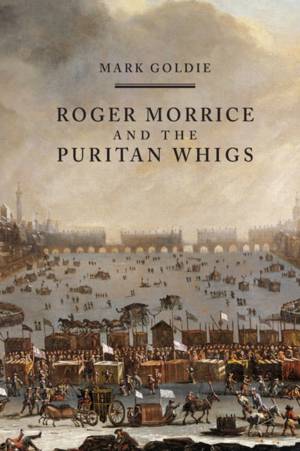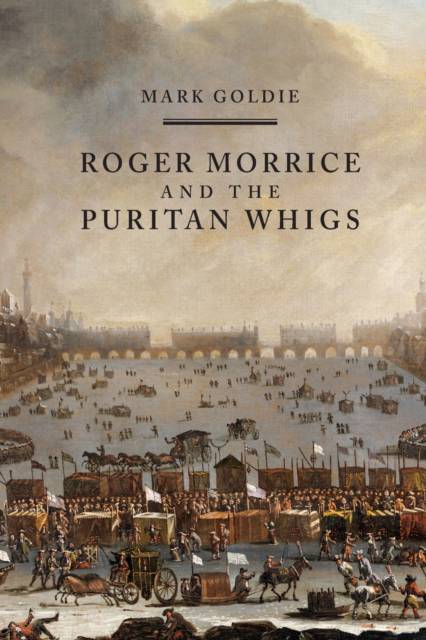
- Afhalen na 1 uur in een winkel met voorraad
- Gratis thuislevering in België vanaf € 30
- Ruim aanbod met 7 miljoen producten
- Afhalen na 1 uur in een winkel met voorraad
- Gratis thuislevering in België vanaf € 30
- Ruim aanbod met 7 miljoen producten
Zoeken
€ 64,45
+ 128 punten
Omschrijving
'An exceptionally significant monograph, and without doubt one of the most important to appear in the field of Restoration history in the last twenty years. Mark Goldie has done more than anyone else to illuminate the political and religious assumptions of late seventeenth-century Englishmen.' Dr Grant Tapsell, University of Oxford. Roger Morrice and the Puritan Whigs explains a movement, illuminates the world of its emblematic representative, and explores one of the most remarkable documents of the seventeenth century. Morrice's Entring Book was supremely well-informed, passionately committed, and relentlessly opinionated. Chronicling the years 1677 to 1691, nearly a million words in length, it is the fullest surviving record of the tumultuous final years of the Stuart regime, from the Popish Plot and Exclusion Crisis to the Glorious Revolution. The Entring Book covers not only politics and religion but also culture and society, gossip and rumour, and manners and mores in the teeming metropolis. Morrice was a Puritan clergyman turned confidential reporter for leading Whig politicians, a barometer of opinion, for whom reliable information was vital for public action. Just twenty years after Pepys's Diary, the Entring Book depicts a darker England, gripped by a new crisis of 'popery and arbitrary government'. Mark Goldie's deeply considered book examines the fortunes of Puritanism in the later Stuart age. It offers a story of disillusion and diminuendo, of struggles for survival in the face of intolerance, and of self-understanding among those who hoped to transform England through 'Godly rule'. Yet the book also tells a countervailing story of revitalized and transformed Puritanism. Puritans worked through parliament, the royal court, and the households of gentry, merchants, lawyers, and clergy. Setting out to galvanize civil society, they mobilized public opinion, organized electorates, and deployed the arts of journalism, influence, and persuasion. Thus the Long Reformation entangled with the First Age of Party, and the Puritan became the Whig. Mark Goldie is Professor of Intellectual History at the University of Cambridge and a Fellow of Churchill College.
Specificaties
Betrokkenen
- Auteur(s):
- Uitgeverij:
Inhoud
- Aantal bladzijden:
- 462
- Taal:
- Engels
Eigenschappen
- Productcode (EAN):
- 9781783271108
- Verschijningsdatum:
- 21/04/2016
- Uitvoering:
- Paperback
- Formaat:
- Trade paperback (VS)
- Afmetingen:
- 156 mm x 234 mm
- Gewicht:
- 644 g

Alleen bij Standaard Boekhandel
+ 128 punten op je klantenkaart van Standaard Boekhandel
Beoordelingen
We publiceren alleen reviews die voldoen aan de voorwaarden voor reviews. Bekijk onze voorwaarden voor reviews.







